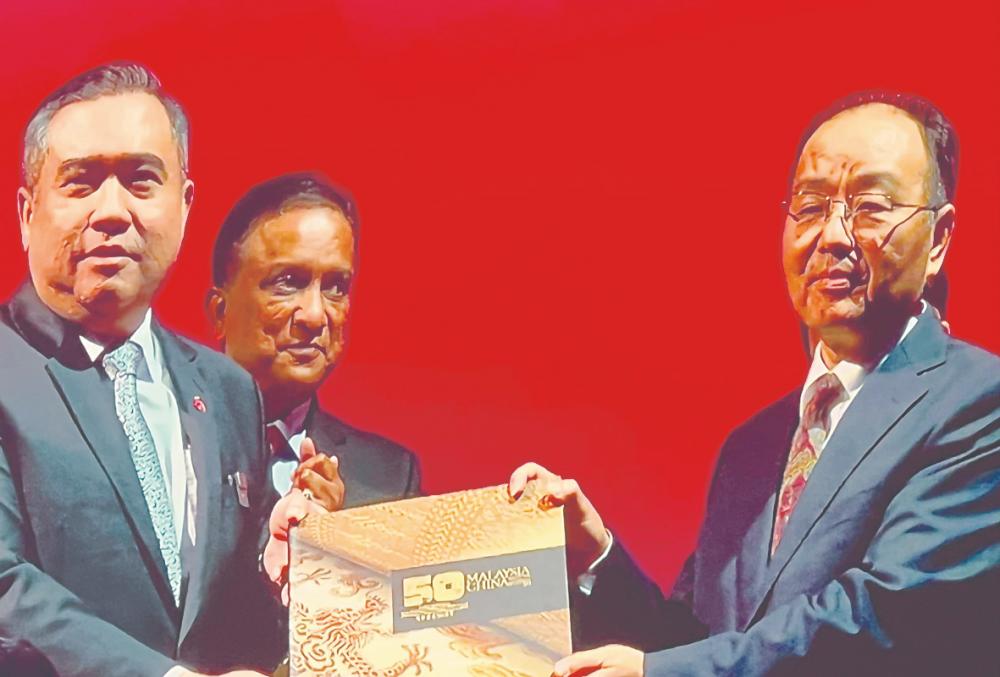KUALA LUMPUR: Trade between Malaysia and China reached RM396.14 billion (US$86.26 billion) for the period of January to October 2024, marking a milestone in the enduring economic relationship between the two countries.
Malaysia External Trade Development Corporation (Matrade) chairman Datuk Seri Reezal Merican Naina Merican underscored the depth of the 50-year partnership.
“The five-decade long partnership has developed closeness between Malaysia and China that has withstood the test of time. This relationship has nurtured a resilient partnership rooted in cultural and economic collaboration,” he said at the Malaysia-China Summit 2024 (MCS 2024) today.
Reezal said China has maintained its position as Malaysia’s top trading partner for 15 consecutive years, contributing 16.6% of Malaysia’s total global trade.
As Malaysia prepares for its chairmanship of Asean in 2025, he highlighted opportunities for regional trade integration, noting that exports to Asean and China collectively made up RM518.55 billion of Malaysia’s total exports for 2024.
“This figure reflects the success of regional trade agreements like the Regional Comprehensive Economic Partnership, which has streamlined trade flows and strengthened economic cooperation. Moving forward, we will leverage Malaysia’s role as Asean Chair to deepen intraregional connections, fostering a more open, inclusive and rules-based economic framework. Malaysia’s strategic position within Asean and its strong ties with China allow us to serve as a gateway for businesses to access larger markets, driving growth and shared prosperity across the region,” he added.
Additionally, Reezal emphasised Matrade’s key initiatives, including plans to introduce Malaysia’s International Halal Showcase to Shanghai and explore untapped Chinese markets such as its Western Region. “This presents significant opportunities for Malaysian businesses and showcases Malaysia’s leadership in the global halal economy,” he said.
MCS 2024, a three-day summit launched by Transport Minister Anthony Loke, serves as the grand finale of the celebration of Malaysia-China’s 50th anniversary of diplomatic ties. It is projected to unlock trade and investment opportunities exceeding RM2 billion.
Loke said Malaysia and China’s diplomatic relationship continues to grow stronger through economic cooperation and critical infrastructure development, particularly in enhancing rail connectivity across the Asean region.
This effort, he added, aligns with national transport policy, which aims for more sustainable and efficient transport.
Loke emphasised Malaysia’s pivotal role in strengthening Asean’s rail network, connecting regional nations to China.
“In discussions with neighbouring countries such as Thailand and Laos, Malaysia is focused on resolving border customs procedures, which remain a significant challenge for rail freight movement,” he told reporters at the summit.
He said improved rail connectivity will not only expedite regional trade but also complement maritime transport, which currently dominates 95% of Asean trade. “The Pan-Asian rail network exists, but it has yet to operate on a large scale. Malaysia is committed to advancing the rail system as an efficient alternative mode of transport,”
The minister highlighted the importance of mega projects such as the East Coast Rail Link (ECRL), which is expected to be a key catalyst for Malaysia’s economic development. “Once completed, not only passengers can benefit from the ECRL, but we also aim to shift freight transport from roads to rail. This move will ease highway congestion and reduce logistics costs,” Loke said.









